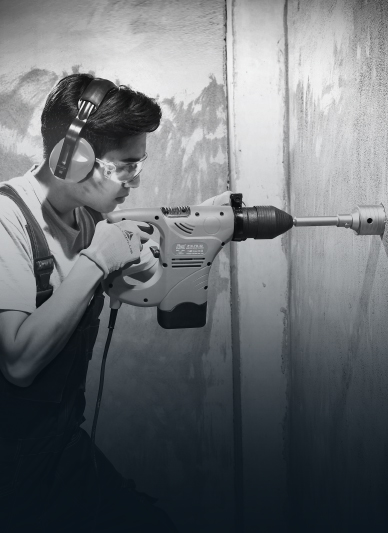When it comes to metalworking, selecting the right tools is essential for achieving high-quality results. One of the important tools in any metalworker’s toolkit is the steel chisel . Whether you're shaping, cutting, or finishing metal, it can make a significant difference in the accuracy and efficiency of your work. However, with so many different types available, it’s important to know how to choose the one that suits your needs. In this article, we’ll explore the factors to consider when selecting a Sale steel chisel for metalworking.
The first step in choosing the right steel chisel is understanding the different types available. Chisels come in various shapes and sizes, each designed for specific tasks in metalworking. The common types include flat chisels, round chisels, and taper chisels. Flat steel chisels are ideal for making straight cuts or removing material from a flat surface, while round chisels are better suited for making rounded cuts or engraving. Taper chisels, on the other hand, are ideal for precision work and fine details. Understanding the function of each type will help you choose the right one for your project.
Another crucial factor to consider when selecting a steel chisel is the hardness of the material. They are made from various grades of steel, and the hardness of the steel directly affects its performance. A harder OEM Chisel Steel will maintain its sharp edge longer and be better equipped to handle tough materials. However, harder steel can also be more brittle, which may lead to chipping or breakage under high stress. On the other hand, may be more flexible and less likely to break, but they might dull more quickly. When choosing one, it’s important to strike a balance between hardness and durability, depending on the type of work you’re doing.
The size and weight of the steel chisel are also important considerations. A larger, heavier one can provide more force and may be better suited for heavy-duty tasks, such as cutting through thick metal or removing large sections of material. However, a smaller, lighter one may offer more precision for detailed work, such as engraving or carving intricate designs. When choosing it, consider the scale of your project and select a size that will give you the control and effectiveness for the job at hand.
In addition to size and weight, the shape of the steel chisel’s blade is another key factor. Chisels come with various blade profiles, such as beveled, flat, or rounded edges. Beveled edges are ideal for cutting along an angled surface, while flat edges are ideal for straight cuts. Rounded edges are great for carving or creating curves in metal. The blade profile will largely determine the types of tasks it can handle, so it’s essential to select the right shape for your project.
The handle material of the steel chisel is another consideration that can influence its performance. Chisels come with wooden or plastic handles, though some may have metal handles for added strength. Wooden handles are generally preferred for their comfort and grip, but they may wear down over time. Plastic handles tend to be more durable and resistant to damage, but they may not offer the same level of comfort as wood. Metal handles are stronger but can be less comfortable to hold for extended periods. When selecting a Carbon Steel Chisels Manufacturer, choose a handle material that provides the right balance of comfort and durability for your needs.
The quality of the steel itself is another important factor to consider. High-quality steel will not only maintain its edge longer but will also provide better performance overall. Look for steel chisels made from carbon steel or alloy steel, as these materials are known for their strength and durability. Chisels made from high-quality materials will also be less likely to warp or lose their edge during use, ensuring that your tool will remain effective for a longer period.
In conclusion, choosing the right steel chisel for metalworking requires careful consideration of several factors, including the type of work, material hardness, size, blade shape, handle material, and overall quality. By selecting one that is well-suited to your specific needs, you can improve the accuracy, efficiency, and longevity of your metalworking projects. Whether you're cutting, shaping, or finishing metal, the right steel chisel will play a crucial role in the success of your work.


 English
English русский
русский 中文简体
中文简体

